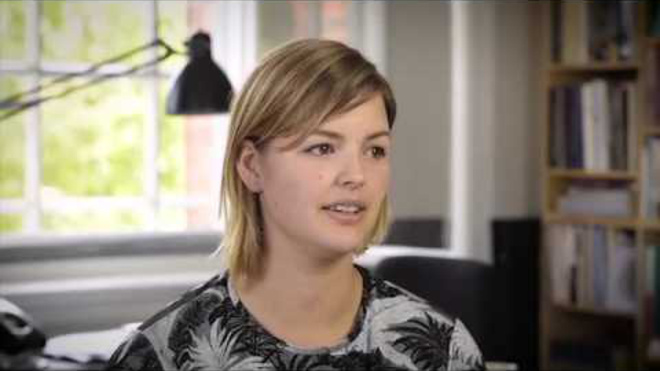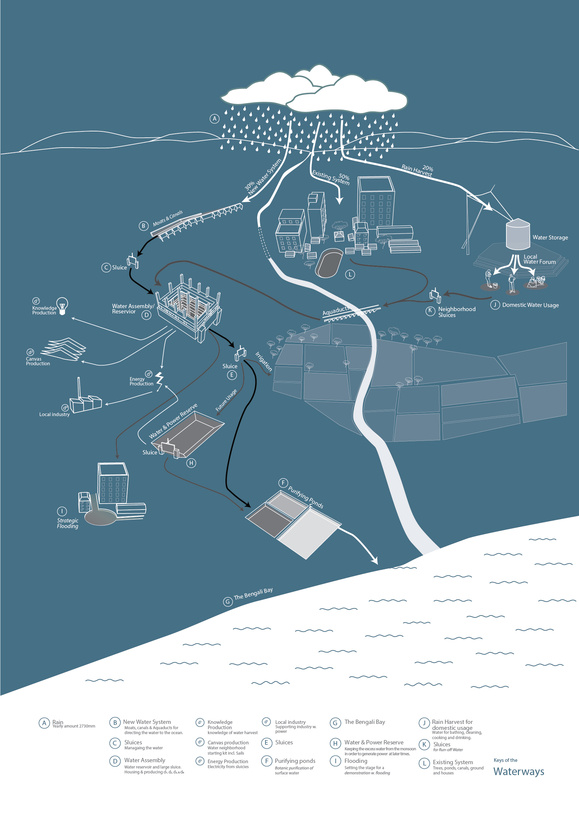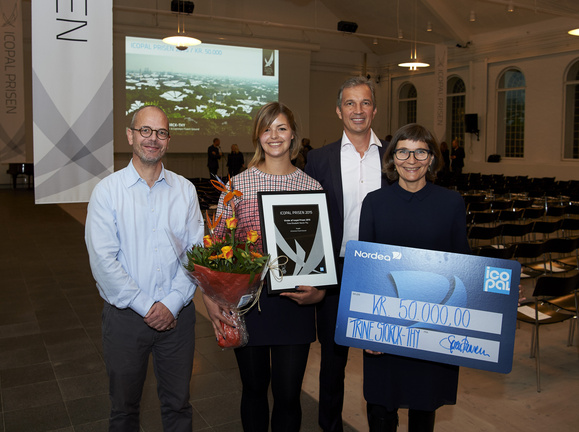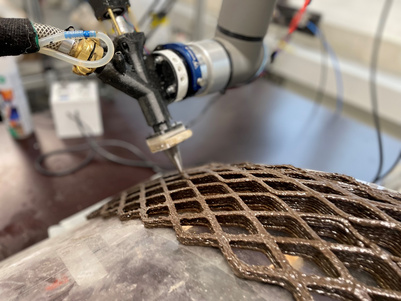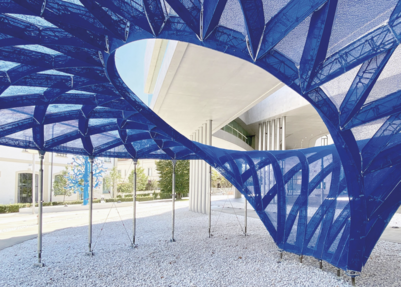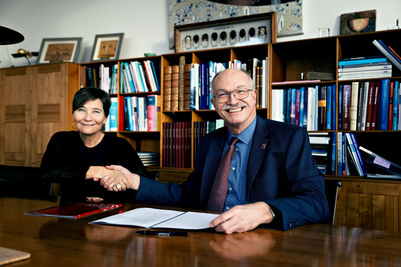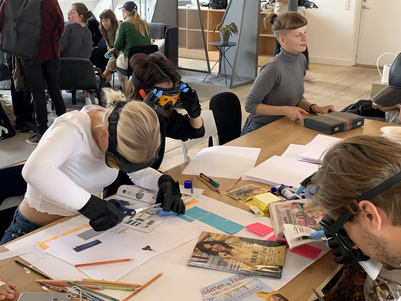At a spectacular event in Copenhagen on 5 November, architect Trine Elisabeth Storck-Thy, who has just graduated from KADK, was chosen as the winner of the 2015 Icopal Prize, awarded for her far-reaching graduation project 'A Common Fluent Ground', which the jury describe as visionary, persuasive and credible. The project addresses the serious problem of drinking water shortages and contamination in Bangladesh.
Trine Elisabeth Storck-Thy makes no secret of her pride and joy at winning the Icopal Prize.
”This is a huge tribute from a skilled jury, and I hope and believe that the Icopal Prize will have a positive effect on my career. I also take great personal and professional satisfaction from winning such a prestigious award,” says Trine Elisabeth Storck-Thy.
The jury found that her project A Common Fluent Ground ”brilliantly deals with a large, complex and important topic…The project also focuses on the role of the architect as both social thinker and designer”.
Danish graduates at the forefront
KADK's rector, Lene Dammand Lund, highlights the Icopal Prize as being a fine opportunity for graduates to demonstrate to the business world that their work is visionary and innovative.
”I think that the prize boosts self-confidence when you are entering into the labour market and need to sell yourself. We can see that the Icopal Prize attracts considerable attention – and it is often practical experience, internships, collaboration with business, and awards that can bring you ahead of others in the job market,” says Lene Dammand Lund, adding that the candidates for the 2015 Icopal Prize demonstrate that graduates educated in Denmark are right at the forefront.
”At the same time,” continues Lene Dammand Lund, ”the prize is helping to create a little constructive and fun competition between students and recent graduates in Copenhagen and Aarhus. And here in Copenhagen we are extremely happy to host and support Icopal’s engagement with this forward-looking award.
Help for Bangladesh
Trine Elizabeth Storck-Thy explains that it was during her fieldwork in Bangladesh in 2014 that she truly realised that it is possible for an architect to make a difference at many levels in a society. And it is this that is reflected to a significant degree in her winning project.
Bangladesh is badly affected by climate change, which has intensified the already-challenging monsoon periods, during which the country experiences enormous quantities of rain in a short time, accompanied by flooding. The rainwater is transformed into a toxic liquid through contact with contaminated ground, industrial waste and garbage, while the groundwater is similarly unusable. At the same time, millions of citizens have no access to clean water for domestic usage such as washing clothes, bathing or drinking, while every year thousands become sick or die as a result of diseases that spread through contaminated water.
Rainwater benefiting citizens
”This is destructive for the country and its population, most of whom live in slums. Against this background, I gave myself the task of developing a solution for the City of Chittagong, ensuring that the large quantities of rainwater are collected and directed to where they benefit the citizens,” says Trine Elisabeth Storck-Thy, adding:
”In my project, this collection takes place in roof constructions in the form of sails, which are hoisted up and stretched out before the monsoon, and removed and cleaned when the rain has stopped. The water is directed from the roof down to a cistern or water tower, which is shared between a number of households or a whole district. Once used, the waste water is drained first into local collection basins via the city’s natural slopes and then into larger basins before being directed from the city. Furthermore, along the way the water passes through an electricity-producing hydropower plant.”
Visionary winning project
As well as securing water and power for the Bangladeshi people, Trine Elisabeth Storck-Thy’s visionary winning project could also create new jobs and provide them with political influence. The idea is, she says, that local citizens should be partly responsible for raising and lowering the sail roofs and for the maintenance of the water system. Every three months, according to the plan, a so-called ’water assembly’, a type of committee for the local water supply, should be established.
”As well as managing the water system, the ’water assembly’ should share knowledge with other assemblies and thereby ensure that best practice is spread throughout Chittagong. At the same time, social meeting-places are created where residents of the neighbourhood can bathe and wash their clothes. These could also be forums in which political issues can be raised, thus creating opportunities for citizens to acquire influence in a political landscape presently controlled by a small wealthy elite and characterised by its corruption.”
Trine Elisabeth Storck-Thy hopes that many of the ideas in 'A Common Fluent Ground' will come to fruition in Chittagong and perhaps also become a policy option for similar cities in Bangladesh and in other developing countries. The first step in this direction is an exhibition on, among other things, the winning project in Chittagong itself.
The Royal Danish Academy of Fine Arts’ School of Architecture is supporting the exhibition financially, but Trine Elisabeth Storck-Thy is also contributing some of the 50,000 crowns that came with the Icopal Prize. She is also using part of the prize money on a trip to Mexico, where she will give a lecture on her winning project.
A successful group of KADK entrants
Apart from the Icopal Prize itself, a number of other talented architects received awards. Two runner-up prizes went to the Aarhus School of Architecture, while KADK was able to celebrate a third prize to Lasse Gam Folke ('Spirets forvandling - et nyt bygværk på Vor Frue Kirke') and no fewer than four honourable mentions, to Søren Kryger Aagaard ('I det fjerne'), Lea Olsson ('Health Cluster'), John Philip Edstrand ('Brottsportalen') and Alexander Guldager Kongshaug ('Nyt Diakonisse Forum').


